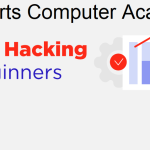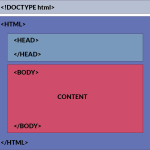In the digital age, where cyber threats loom large, the role of ethical hackers has become increasingly critical. Ethical hacking, also known as penetration testing or white-hat hacking, involves legally breaking into computer systems and networks to identify vulnerabilities and weaknesses. This article serves as a comprehensive guide for beginners looking to delve into the fascinating world of ethical hacking.
Understanding Ethical Hacking:
Ethical hacking is the practice of testing the security of systems and networks with the permission of their owners. Unlike malicious hackers, ethical hackers use their skills and knowledge for constructive purposes, helping organizations identify and fix security flaws before they can be exploited by cybercriminals.
Key Concepts about Ethical Hacking:
- Legal and Ethical Considerations: Ethical hackers must operate within the bounds of the law and adhere to strict ethical guidelines. Unauthorized hacking or accessing systems without permission is illegal and unethical.
- Scope and Rules of Engagement: Before conducting any hacking activities, ethical hackers must establish clear rules of engagement with the organization commissioning the test. This includes defining the scope of the test, permissible actions, and the boundaries that must not be crossed.
- Reporting and Remediation: Ethical hackers document their findings and report them to the organization’s stakeholders. They work closely with security teams to prioritize and address identified vulnerabilities, ensuring that systems are adequately protected.
Getting Started with Ethical Hacking:
- Build a Solid Foundation: Ethical hacking requires a strong understanding of computer networks, operating systems, programming languages, and cybersecurity principles. Beginners should focus on acquiring knowledge in these areas through online courses, books, and practical exercises.
- Choose Your Path: Ethical hacking encompasses various specialties, including web application security, network security, mobile security, and more. Decide which area interests you the most and tailor your learning accordingly.
- Hands-on Practice: Practical experience is essential for mastering ethical hacking skills. Set up a virtual lab environment using tools like VirtualBox or VMware, and practice techniques such as network scanning, vulnerability assessment, and exploitation in a controlled setting.
- Certifications: Obtaining industry-recognized certifications can enhance your credibility as an ethical hacker. Popular certifications include Certified Ethical Hacker (CEH), Offensive Security Certified Professional (OSCP), and CompTIA Security+.
- Join the Community: Engage with the ethical hacking community through online forums, social media groups, and local meetups. Networking with fellow hackers can provide valuable insights, support, and opportunities for collaboration.
Ethical Hacking Tools and Techniques:
- Scanning and Enumeration: Tools like Nmap, Nessus, and OpenVAS are used to scan networks for open ports, services, and vulnerabilities.
- Exploitation: Metasploit Framework, Burp Suite, and SQLMap enable ethical hackers to exploit identified vulnerabilities and gain unauthorized access to systems for testing purposes.
- Wireless Hacking: Wireshark, Aircrack-ng, and Reaver are commonly used for analyzing and exploiting wireless network security weaknesses.
- Web Application Testing: OWASP ZAP, Nikto, and SQLMap help identify security flaws in web applications, such as SQL injection, cross-site scripting (XSS), and insecure authentication mechanisms.
- Forensics and Incident Response: Tools like Volatility and Autopsy are essential for analyzing and investigating security incidents, such as malware infections or data breaches.
Ethical hacking offers a rewarding and challenging career path for individuals passionate about cybersecurity. By adhering to ethical principles, continuously expanding their knowledge, and honing their skills through practical experience, beginners can embark on a journey to become proficient ethical hackers, safeguarding digital assets and protecting against cyber threats in an increasingly interconnected world.






